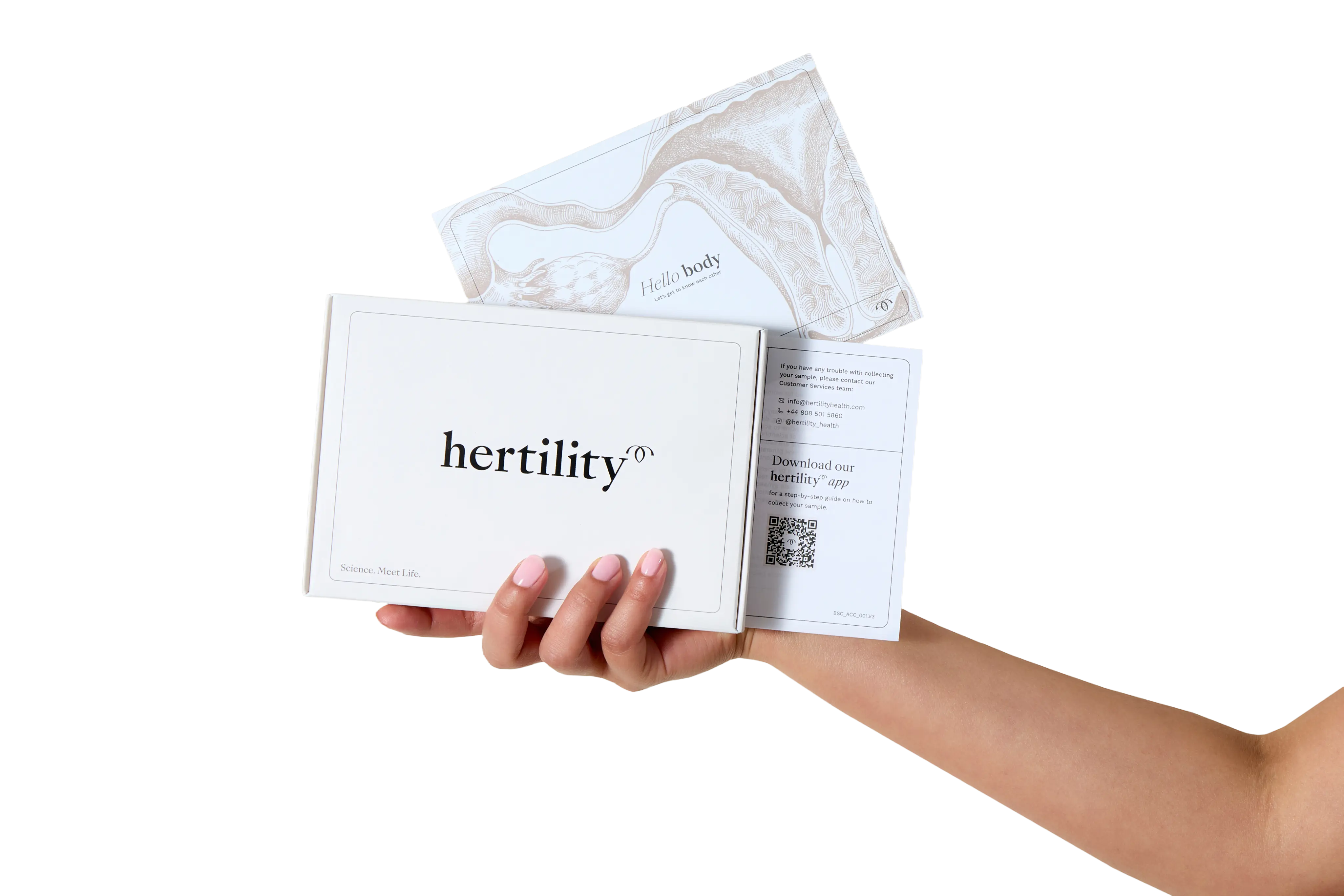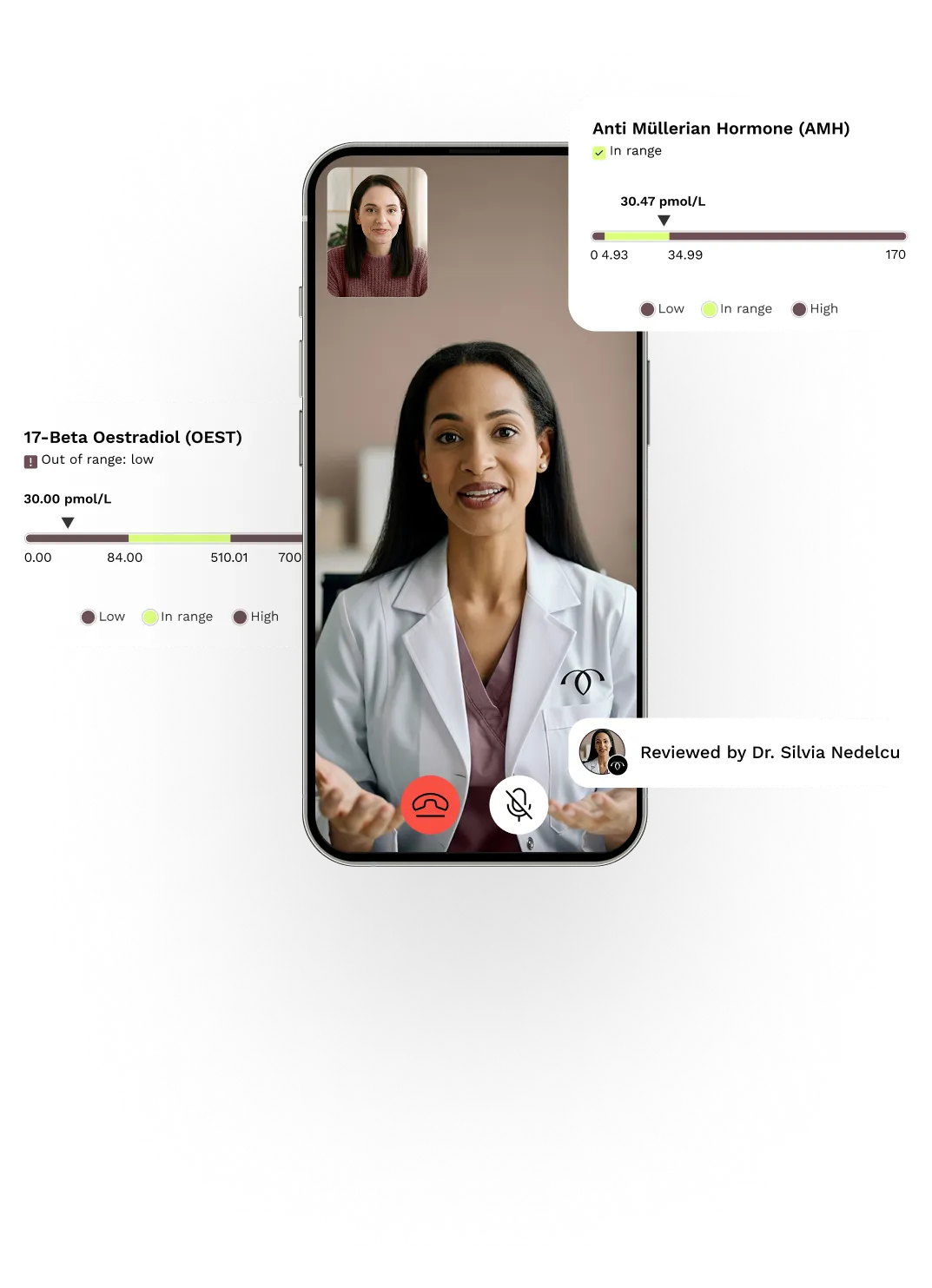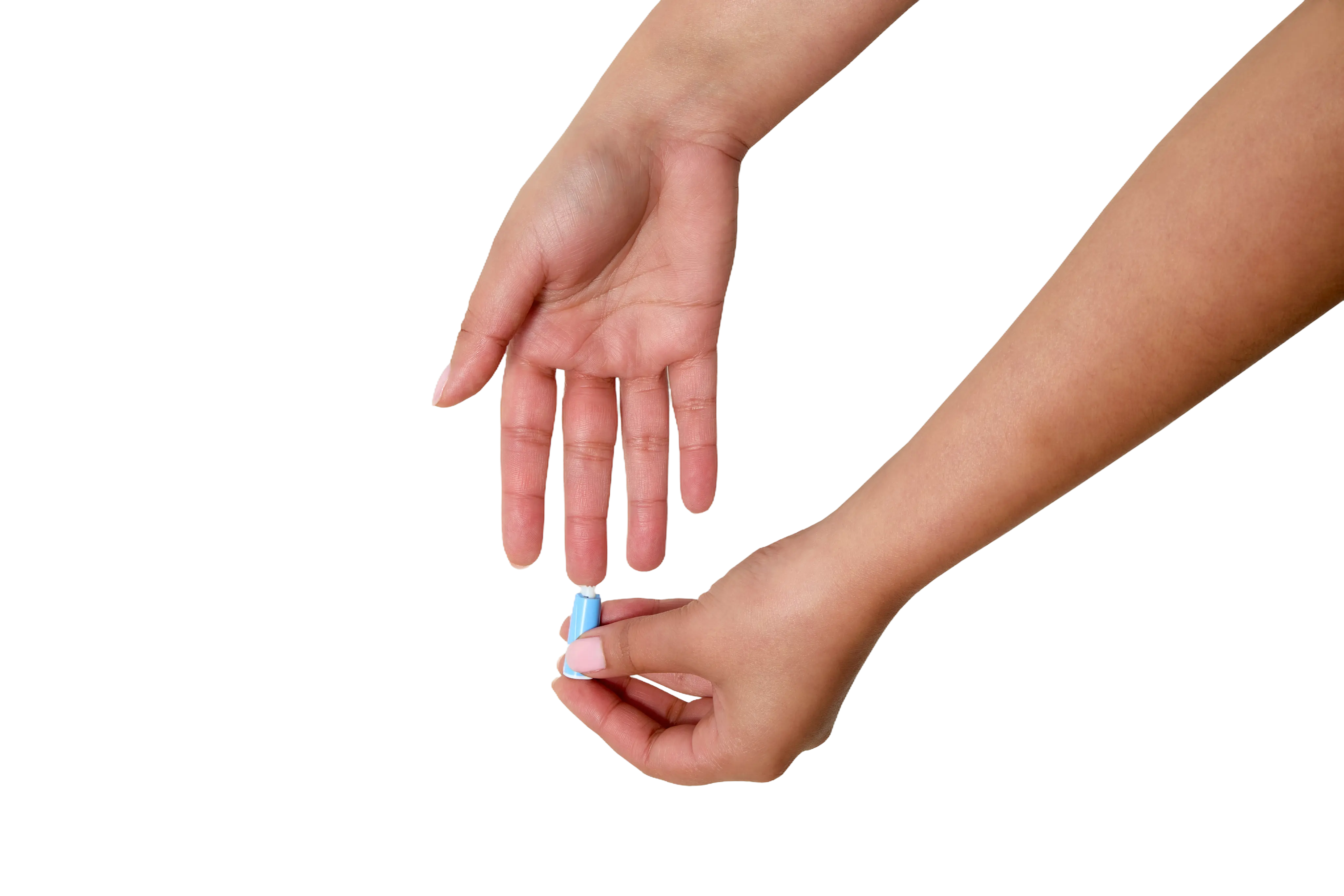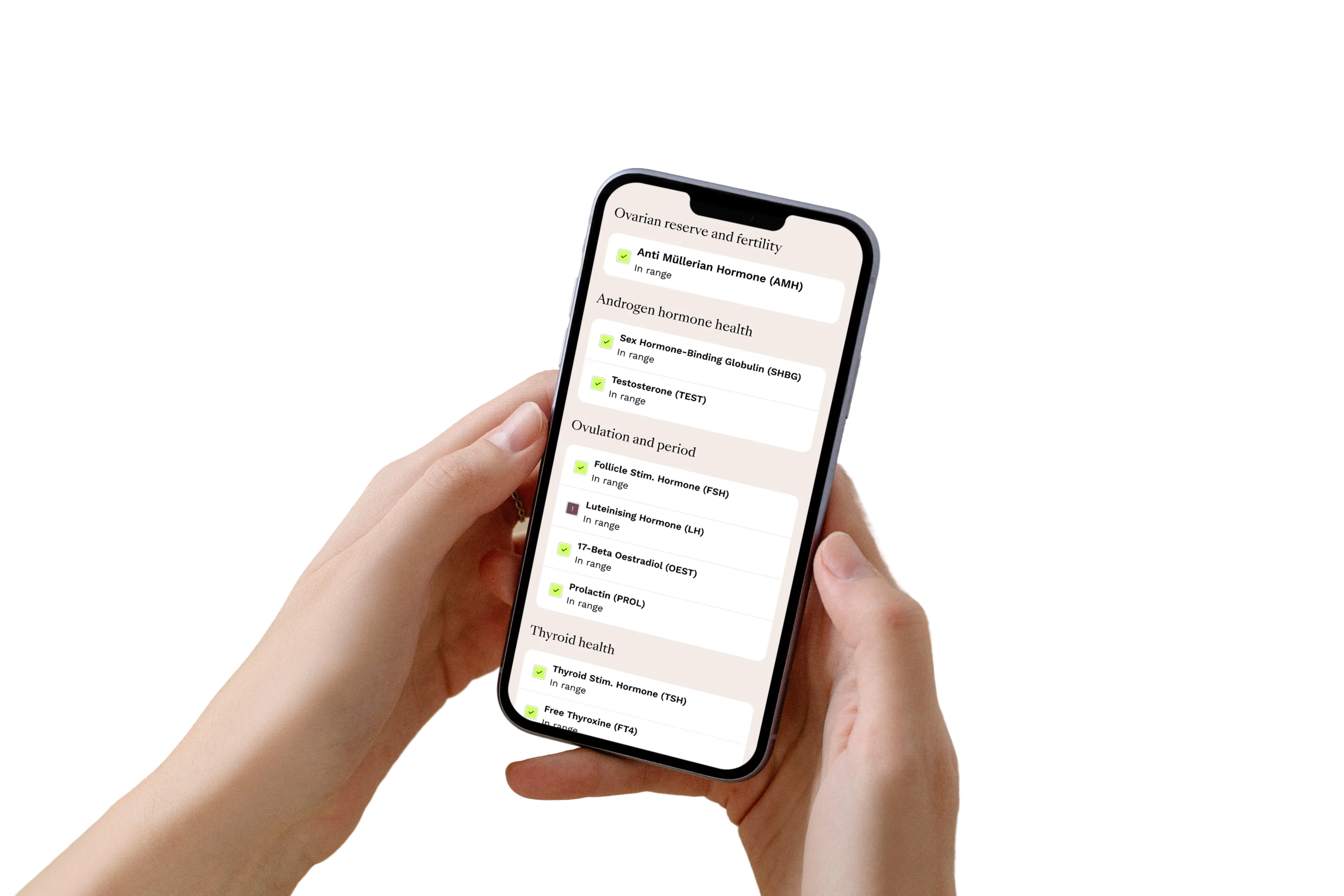Advanced At-Home Hormone and Fertility Test
Included in the price
Free shipping & sample return
Next day delivery
Results back in 6 days
We're all at different stages of our journey
What's most important to you?
Managing symptoms
Fatigue, irritability, anxiety, feeling cold, low mood, acne...
Fertility
Planning for the future or actively trying to conceive
Perimenopause or Menopause
Menopausal or experiencing symptoms and looking for answers
How it works

Receive your blood collection kit
Posted straight to your door, including everything you need to collect and return your sample. Your blood sample will be sent to our trusted and accredited lab.

Get your results
In-app, on the go, in 6 days of sending back your sample, complete with a doctor-written report and care plan.
Get a sample report by email
By downloading the sample report, you are confirming you wish to receive communications about new products, offers and events. See our full privacy terms here.

Book a Clinical Results Review call
Get access to an in-house expert who can walk you through your results, answer any questions and give you guidance on next steps.
Our lab accreditations
Our lab is UKAS accredited (ISO 15189:2022) for capillary and venous blood sampling. It was also the first UK lab to attain this level of accreditation. It leads the UK in the capillary testing specialisation having published widely on the subject. It maintains the highest form of internal and external regulations. Our hormone & fertility test kits are CE-marked for IVDR use and MHRA registered. We adhere to strict testing policies to uphold our compliance.


I feel dismissed
I am just a number
I don't feel heard
We’ve helped over 600,000 women
From navigating symptoms to finding fertility answers, we’ve supported thousands of women on their personal journeys. Watch their stories.
0/5
World-class treatment, without the wait
Hear from our clinicians


Dr Jennifer Barcroft
Specialist Obstetrics and Gynaecology Doctor
MBChB BMedSci MRCOG
“I recommend Hertility to my patients because it’s the first step to finding out what’s causing your symptoms.”
We partner with trusted clinics
As part of our commitment to provide end-to-end care, we partner with trusted clinics for treatments and on-going care such as IVF, IUI and egg freezing.
We take data protection seriously.
We are certified to meet the highest standards of data security and we strictly adhere to doctor-patient confidentiality.

Frequently asked questions
Shipping
What is your refund policy?
+Is the packaging discreet?
+When should I return my sample?
+Advanced Hormone and Fertility Test
How does the Advanced Hormone and Fertility Test work?
+Which day of my cycle should I test?
+What time of day should I test?
+What else do I get alongside my blood results?
+What is included in a full hormone panel?
+Clinical Results Review Call
What is a Clinical Results Review Call?
+When do I book my Clinical Results Review Call?
+Can I do the test if...
...I am on hormonal contraception?
+...I am breastfeeding?
+...I have diagnosed PCOS?
+Get help whilst doing the test














